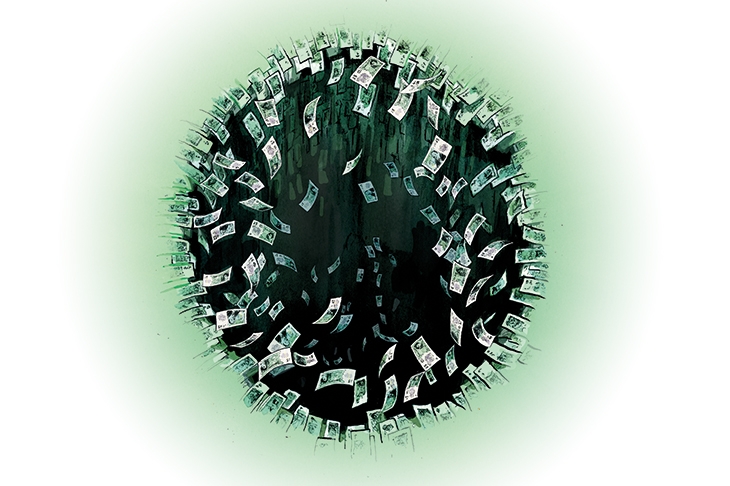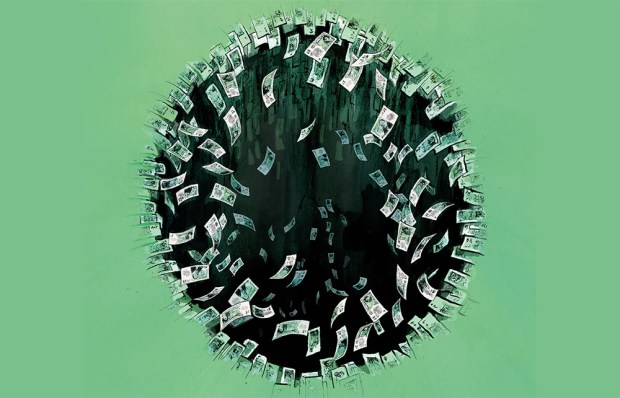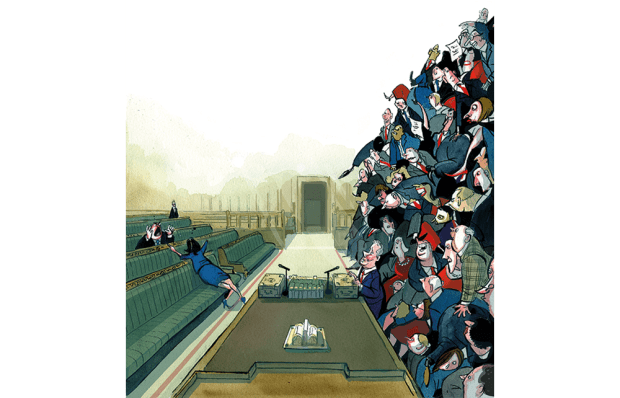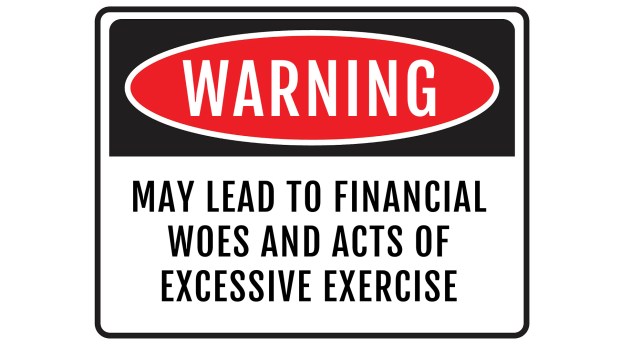Zero balance
Sir: James Kirkup (‘In defence of net zero’, 14 August) highlights the falling cost of solar and wind energy. But he fails to mention
that on some winter days, the associated capacity totals only around 1 to 10 per cent of UK maximum demand. Adding more solar and wind generation will not change that. The shortfall has to be made up by nuclear or fossil-fuelled power plants, or by energy storage plants, which cost money to install and maintain. How much money?
Ross Clark’s article (‘Zero-sum game’) is more enlightening, with a National Grid estimate of £3 trillion just to decarbonise the grid. Add to that the replacement of domestic gas boilers, with electric heat pumps, plus new radiators and pipework for 28 million households, and the cost rises to around £3.5 trillion, or £125,000 per family.
As Ross points out, the cost of decarbonising transport and industrial systems must also be added, bearing in mind that petrol and diesel duties (around £30 billion p.a. — or £10,000 per vehicle) will have to be raised by other means.
No business would embark on such a strategy without a fully tested cost/benefit analysis. Indeed, the physicist Professor Richard Lindzen is clear that atmospheric levels of CO2 lag global temperature — not the other way around. He concludes: ‘The influence of mankind on climate is trivially true and numerically insignificant.’
Add to that that CO2 comprises only around 0.04 per cent of the atmosphere and that human activity contributes about 3 per cent of that, while the UK contributes around 1 per cent of that. Multiply the product of those percentages by the percentage contribution of CO2 to the greenhouse effect and you are likely to come to a similar conclusion as Professor Lindzen.
The UK is in danger of driving many into fuel poverty for limited benefit while big coal-burners such as China, India and Germany delight at our ever declining competitiveness — and our PM continues to burnish his green credentials.
Roger J. Arthur
Storrington, West Sussex
Nobody’s perfect
Sir: Sean Thomas’s ‘American nightmare’ (14 August) was essentially a list of America’s enormous problems. He writes that ‘no sane western European should willingly move to the USA’ — because of wealth skewed by the incomes of the top 1 per cent, earlier death, smaller holidays, the cost of medical care. The final reason to stay away is, ludicrously, to avoid being gunned down. ‘In 2020 guns killed nearly 20,000 Americans. In the same year in the UK guns killed 33 Brits’ — but he does not mention the relative populations (USA, 331.5 million; UK, 67 million). He dismisses in one sentence America’s ‘glorious national parks, the dynamism of the cities, excellent universities, world-class tech companies’, which in no way balance out his view of our greatest ally. Why give space to such a gleeful listing of its faults?
Zelda Craig
West London
Churchill’s complexity
Sir: How much more effective Andrew Roberts would be (Books, 14 August) if he did not feel impelled to defend Churchill against almost every hint of criticism. He denies that Churchill had ‘fascist leanings in the 1920s’, a contention that is only true as regards Britain. Visiting fascist Italy in 1927, he declared that ‘your movement has rendered a service to the whole world’; as late as 1937 he spoke of ‘the enduring position in world history which Mussolini will hold’. His hatred of communism (suspended for a time after 1941) led him to welcome all allies in the struggle against it, apart from Nazi Germany, which most of his fellow Tories were willing to tolerate before 1939 on that original Churchillian ground. Will biographers of Churchill ever break the habit of either lauding or denigrating him unduly? They shirk the historian’s central task, which is to weigh up this extraordinary man’s successes and failures calmly and dispassionately.
Alistair Lexden
London SW1
Keep on trucking?
Sir: Martin Vander Weyer (Any Other Business, 7 August) suggests a Dad’s Army of ageing lorry drivers should step up to help relieve the shortage of HGV drivers. On completion of a very good engineering apprenticeship, I’d had enough of being in a factory and being forced to join a union. Looking for an alternative, I did my HGV training and got a job in general haulage. I was disappointed to find that almost everywhere I went to pick up or drop off a load, drivers were treated like something stuck to your shoe. I’ve no idea if things have improved or not and I don’t want to find out. Thank you Martin, but I’m pleased to say that my HGV licence has expired.
Paul Davey
Pailton, Warwickshire
Humans and nature
Sir: ‘Notes on… avocets’ (14 August) flags up how much their flourishing population owes to human intervention. If this were more widely known, it would perhaps lessen some of the environmentalist lobby’s impact on, for instance, the anti-Sizewell campaign. Visitors to Minsmere and the RSPB in general might consider that when it comes to coastal ecology, some human intervention can be helpful. It might even give BBC presenters pause when presenting man as the villain in all matters environmental.
James Dent
Brent Eleigh, Suffolk
Cyber hygiene
Sir: It was very saddening to read about the ransom for the return of the Instagram account (‘Phishing trip’, 7 August). We are used to Covid protection such as handwashing. It’s important we practise cyber hygiene too — such as two-factor authentication, and the use of pass phrases instead of words. Ask a knowledgeable friend or search for the National Cyber Security Centre for details. It can greatly reduce the chances of becoming a victim.
Paul Butler
Tring, Herts
Got something to add? Join the discussion and comment below.
Get 10 issues for just $10
Subscribe to The Spectator Australia today for the next 10 magazine issues, plus full online access, for just $10.
You might disagree with half of it, but you’ll enjoy reading all of it. Try your first month for free, then just $2 a week for the remainder of your first year.














Comments
Don't miss out
Join the conversation with other Spectator Australia readers. Subscribe to leave a comment.
SUBSCRIBEAlready a subscriber? Log in